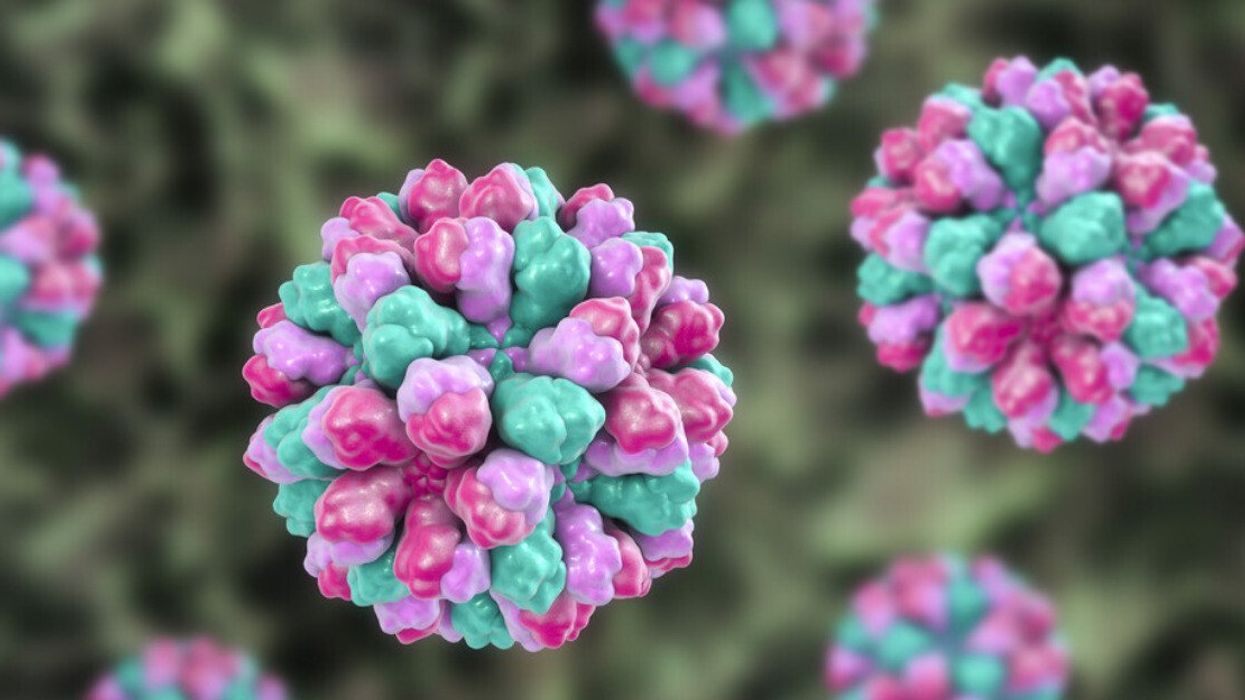Norovirus Outbreaks Are Surging Across Canada — Here's What You Need To Know
This stomach bug is "Norwalk" in the park.

Norovirus, also known as winter vomiting bug.
A highly contagious stomach bug is creeping across Canada, wreaking gastrointestinal distress. Norovirus, like the Norwalk strain, is starting to cause major outbreaks this season bringing with it unpleasant symptoms linked to stomach flu, fever and fatigue.
Infections usually spread in the colder months through contaminated food and can last for several days. If you or a friend feel the onset of an upset stomach, here's what you should keep in mind:
What are the symptoms of Norovirus?
The most common symptom of norovirus infection is sudden gastrointestinal discomfort. That could mean stomach or intestinal pain, diarrhea, vomiting, nausea or cramping. Fever, chills, headache, body and muscle aches and fatigue are also common.
How long does the Norovirus bug last?
The incubation period for norovirus infections is between 12 hours and two days, but symptoms usually appear within hours of exposure to the virus. Health Canada indicates most people start to feel better on their own within two or three days. There are no long-term health effects.
How do you get Norovirus?
Norovirus is so contagious that it can be spread simply by having direct contact with an infected person by sharing food or utensils with an infected person, caring for an infected person, touching a contaminated surface and then touching your mouth before washing your hands or eating contaminated food. Food can become contaminated with norovirus when handled by a person who's infected.
That means people who are sick should stay home for at least 48 hours after they stop showing symptoms to prevent passing on the infection to classmates, colleagues or randos on the street.
How to tell the difference between Norovirus and food poisoning?
A major difference between norovirus and regular food poisoning is the time it takes to see symptoms. Usually, you'll get sick with norovirus between 24 to 48 hours after exposure, but you'll get food poisoning much faster, between two and six hours after eating contaminated food.
How do you treat Norovirus?
There's no treatment for norovirus, so you have to let the bug run its course. But you can prevent a more extreme reaction. Expulsion of bodily fluids due to the bug can result in dehydration, fatigue and weakness, which means hospitalization and intravenous fluid treatment can be required in the worst cases.
Health Canada advises making an effort to eat and drink while you're sick, by "eating slowly and taking small bites or taking little sips of fluids." If you eat too fast or too much, your body can reject the intake.
Try to focus on replenishing your electrolytes — coconut water and some sports drinks are good sources — and eat bland foods, like bananas, rice, cereals or bread, to give your stomach a break.
How do you protect yourself from catching Norovirus?
The best way to protect yourself from the virus is to wash your hands with soap and water and especially before preparing or eating food. Raw fruits and vegetables should be cleaned under running water before preparing or eating them. Any clothing or bedding that has touched vomit or diarrhea should be cleaned immediately.
Anyone who has the virus should wash their hands regularly and not prepare or serve food or drink to others until at least three days after they've stopped showing symptoms.
